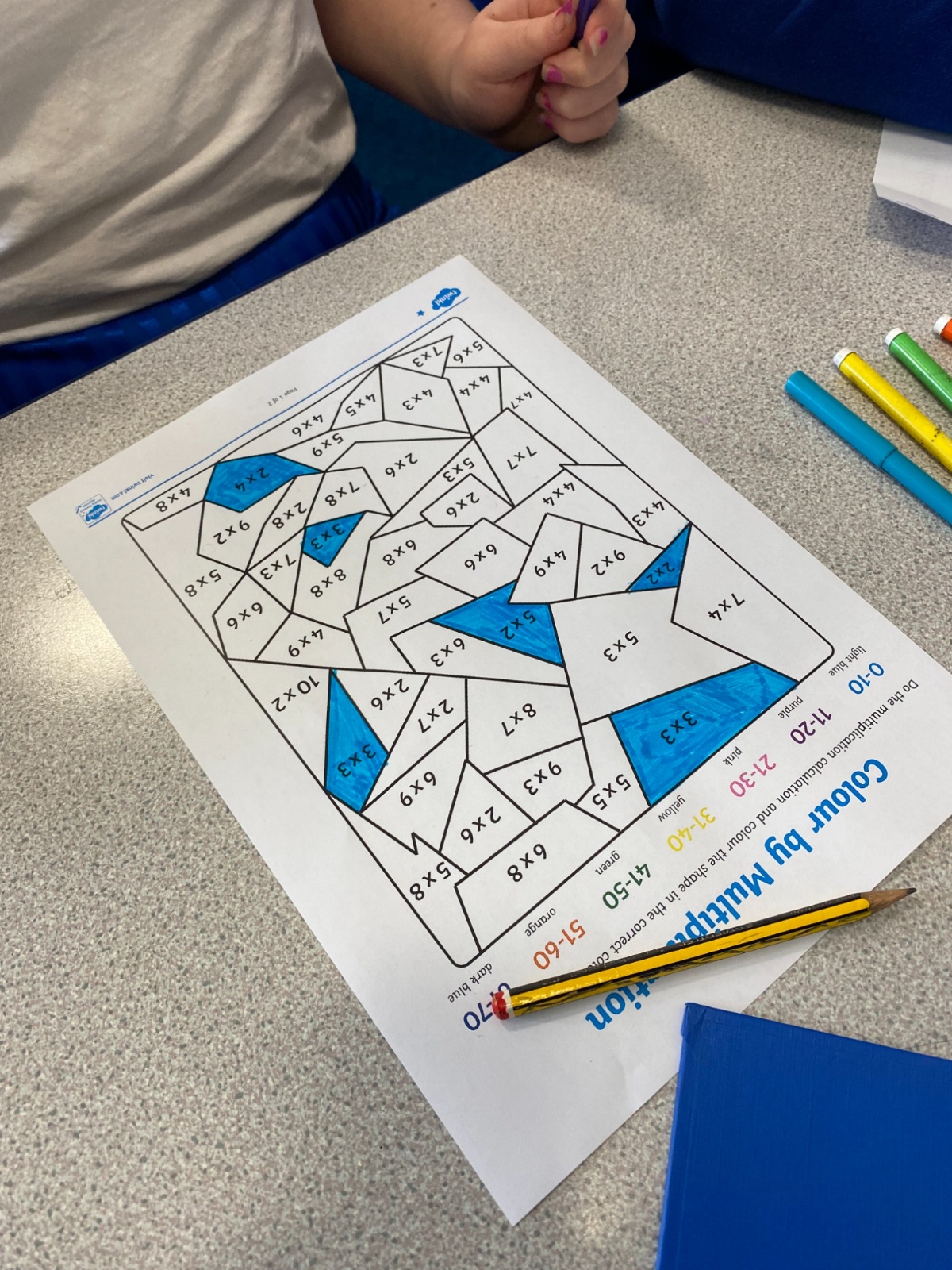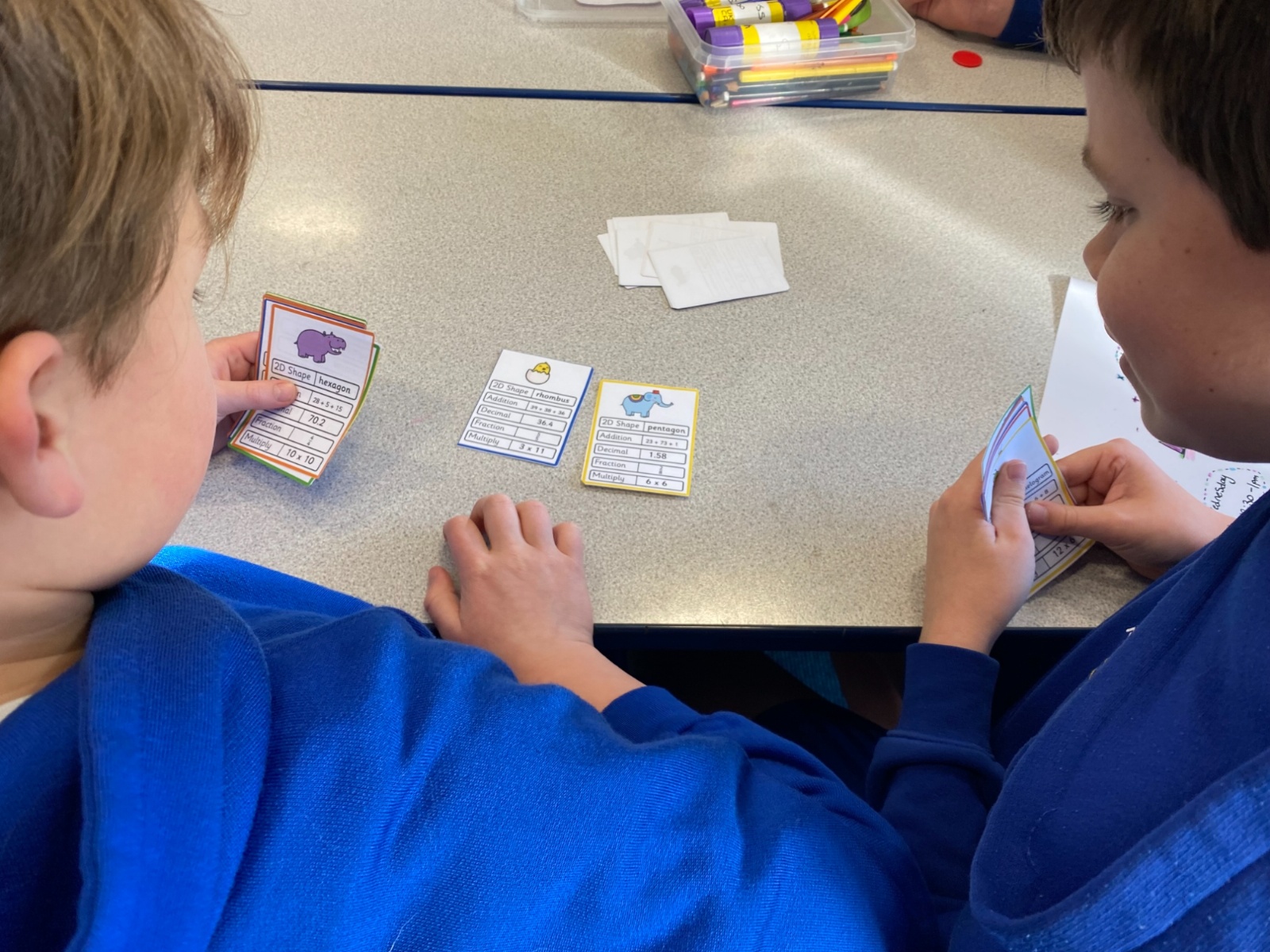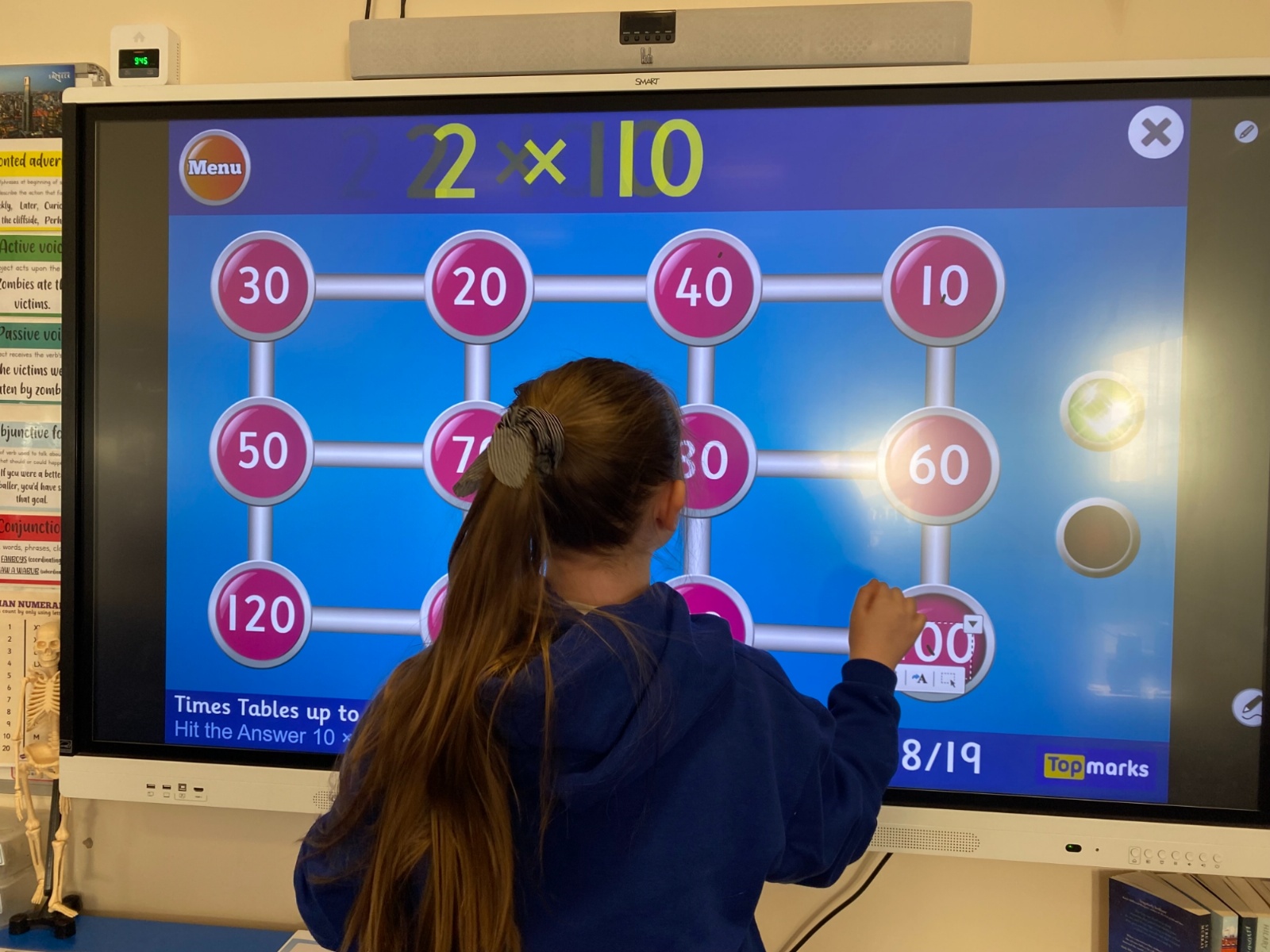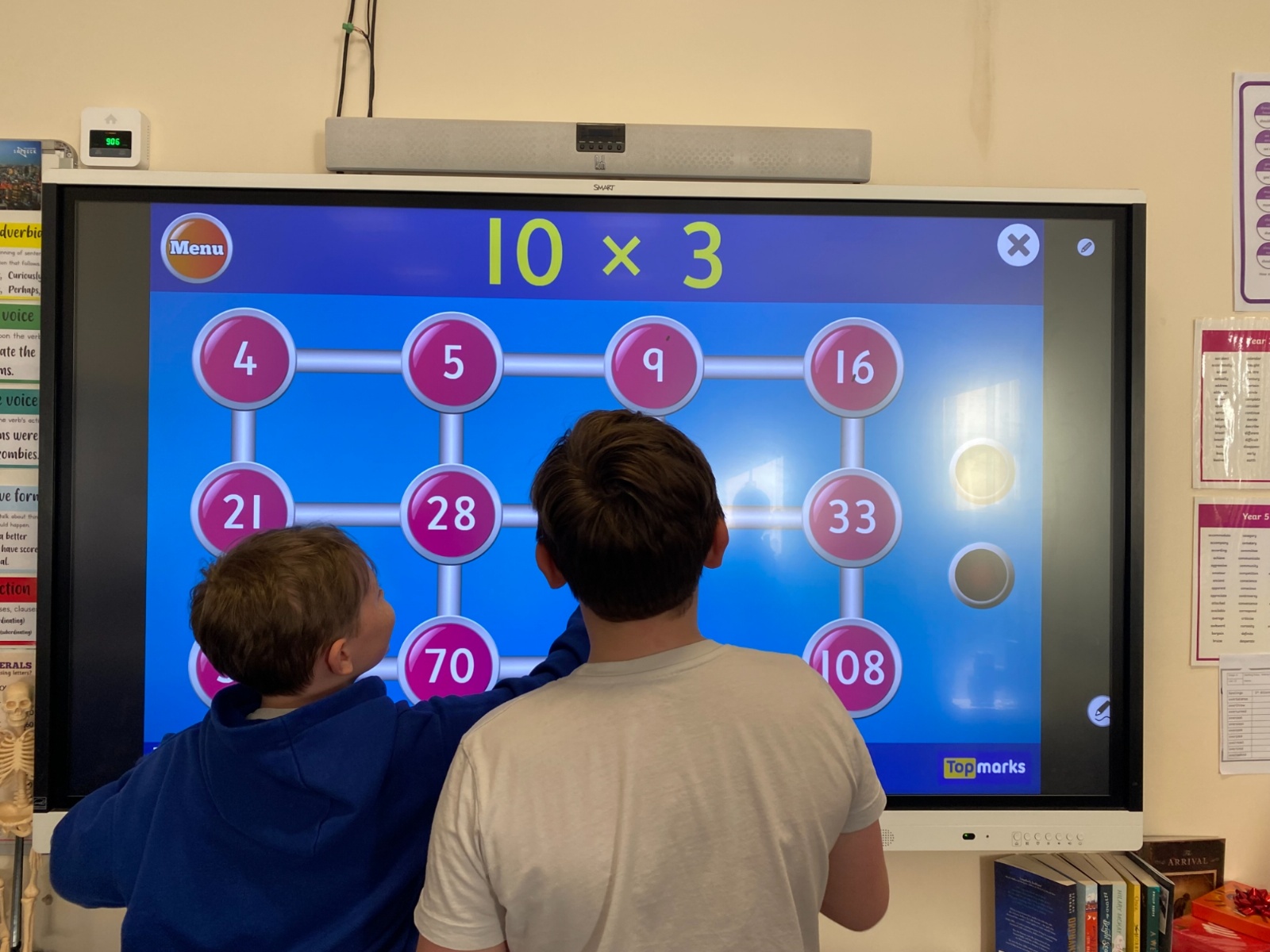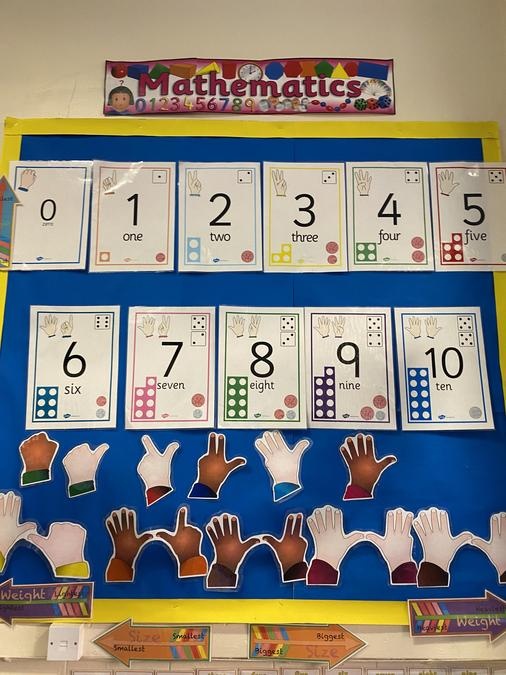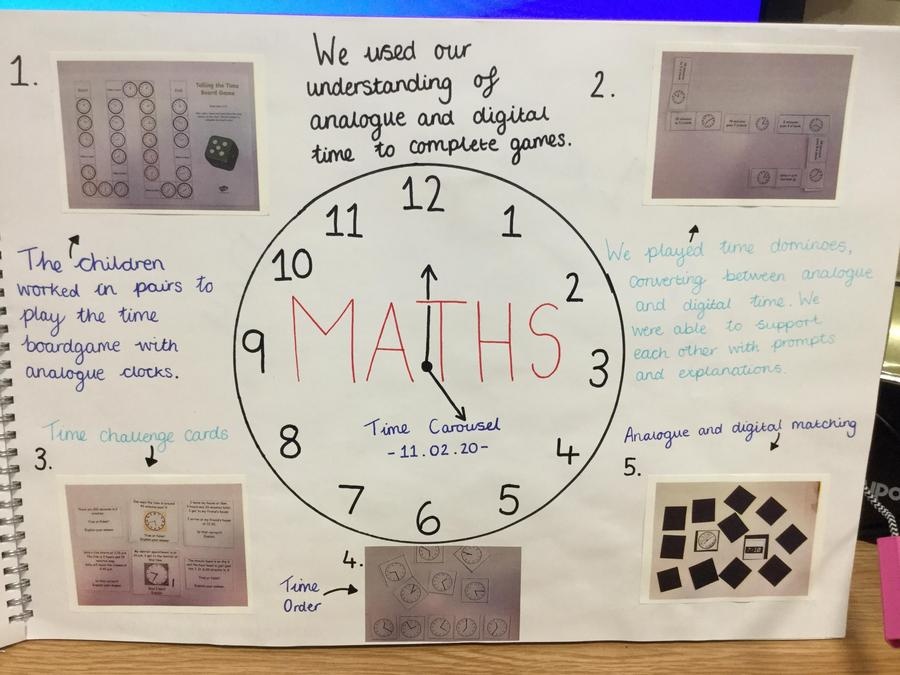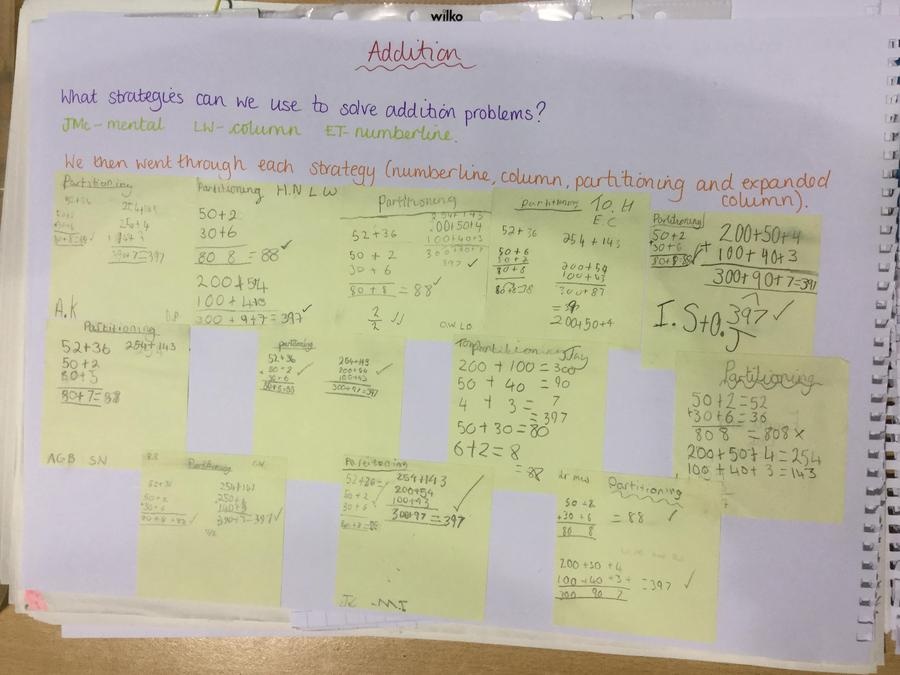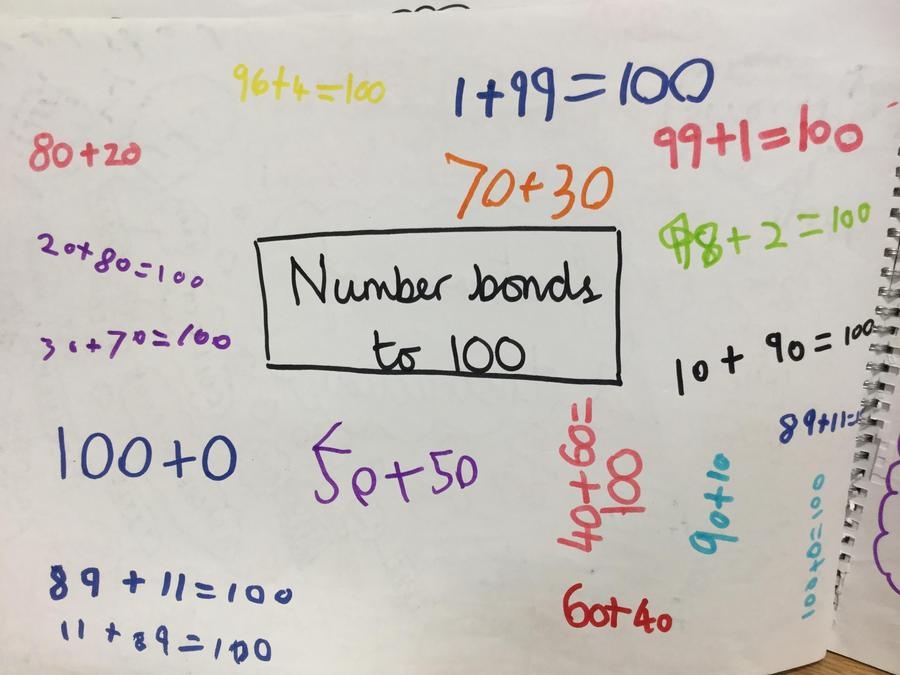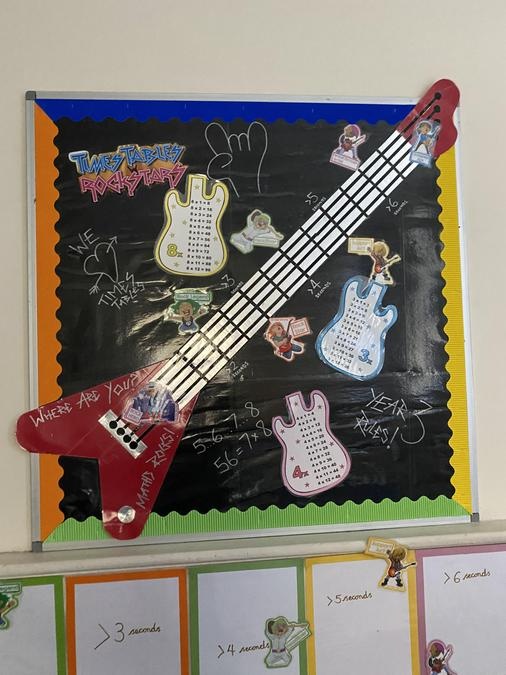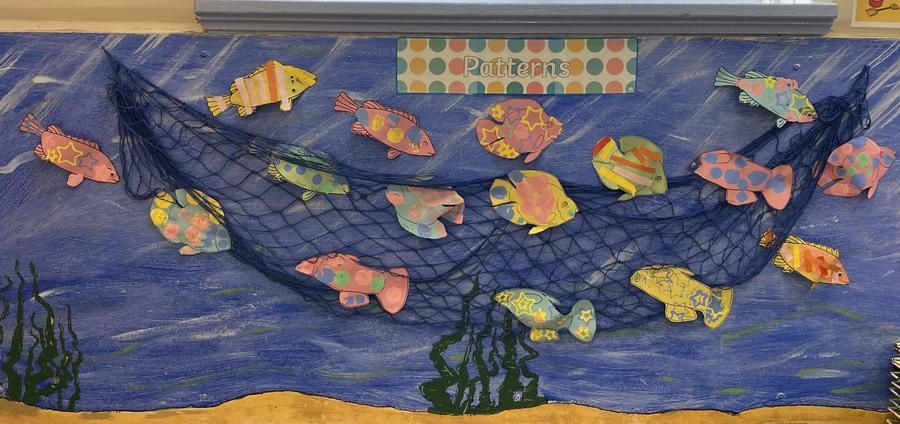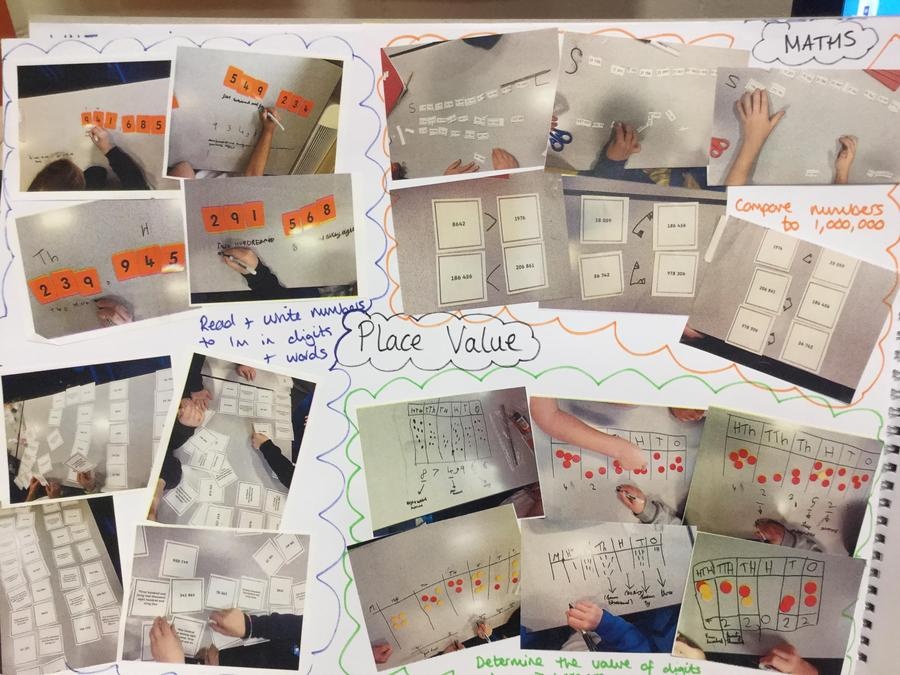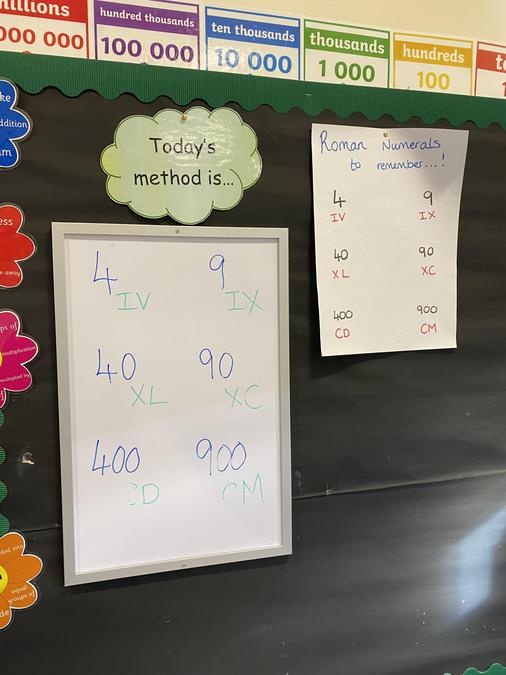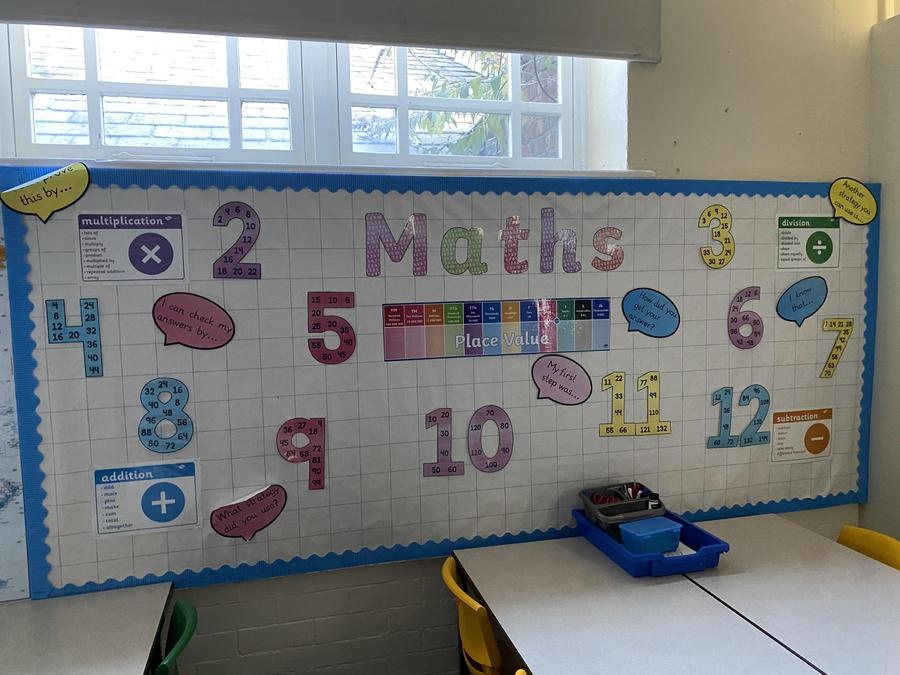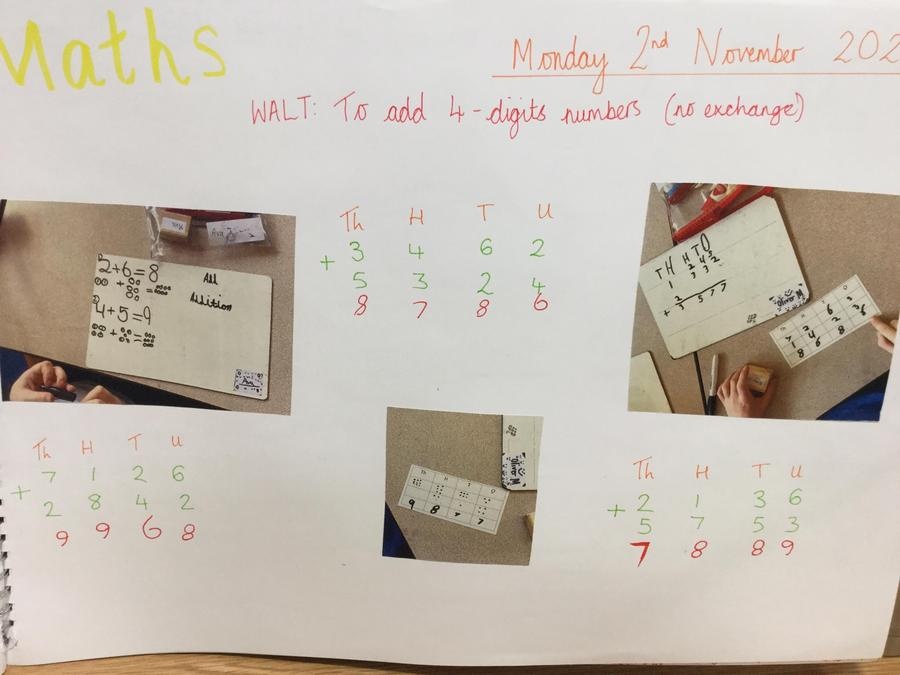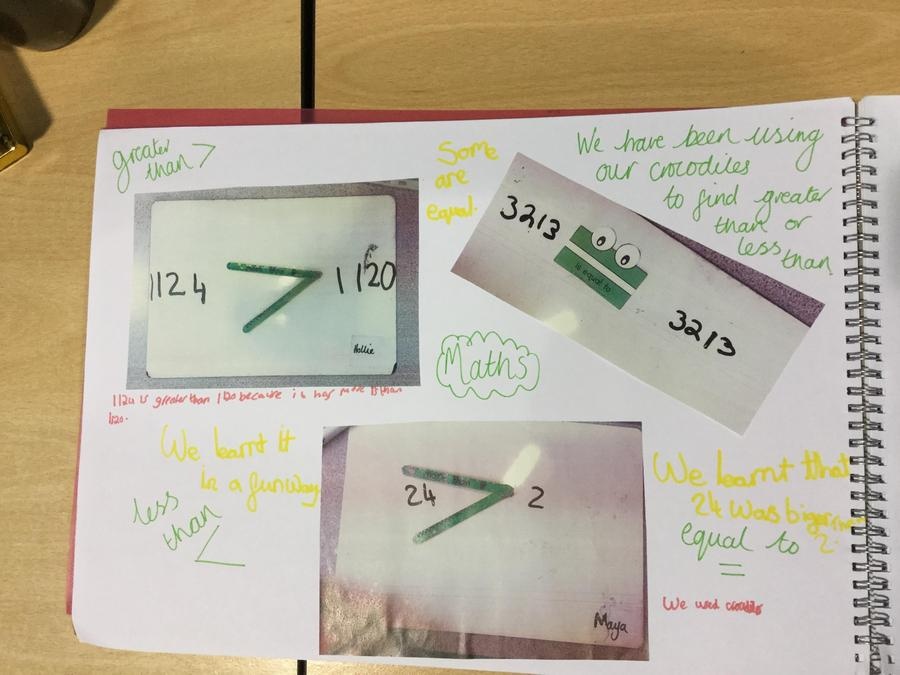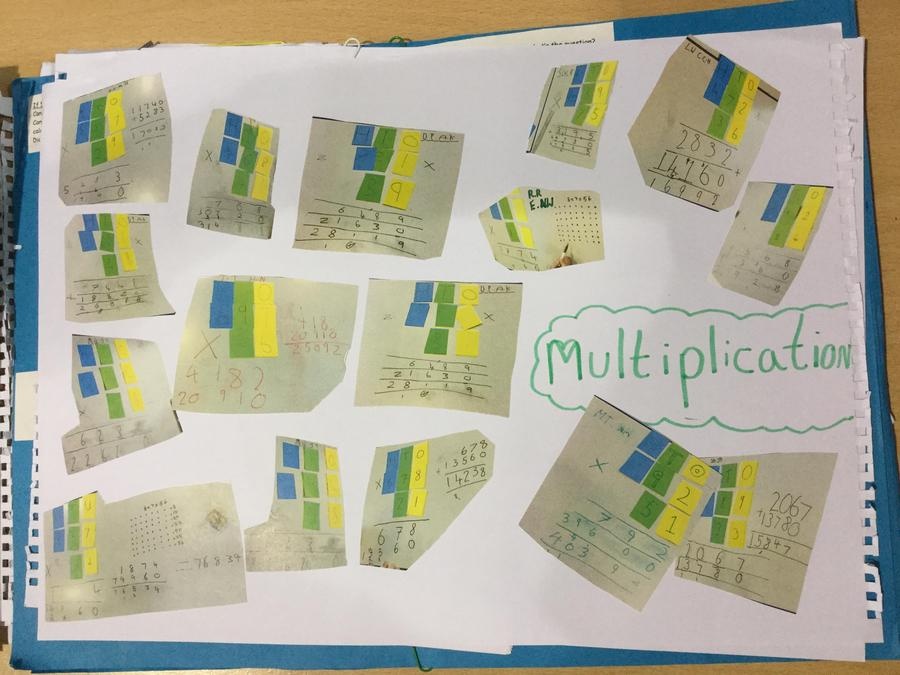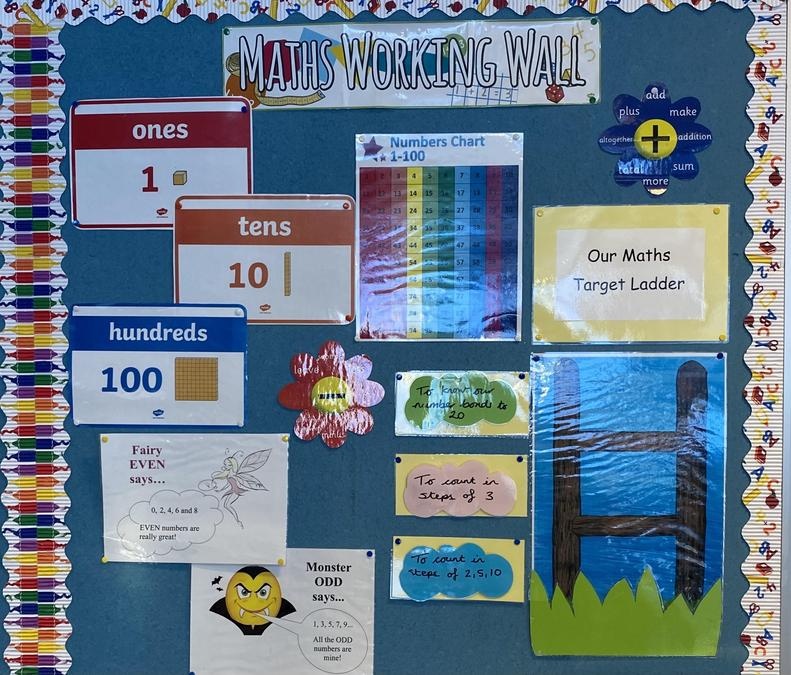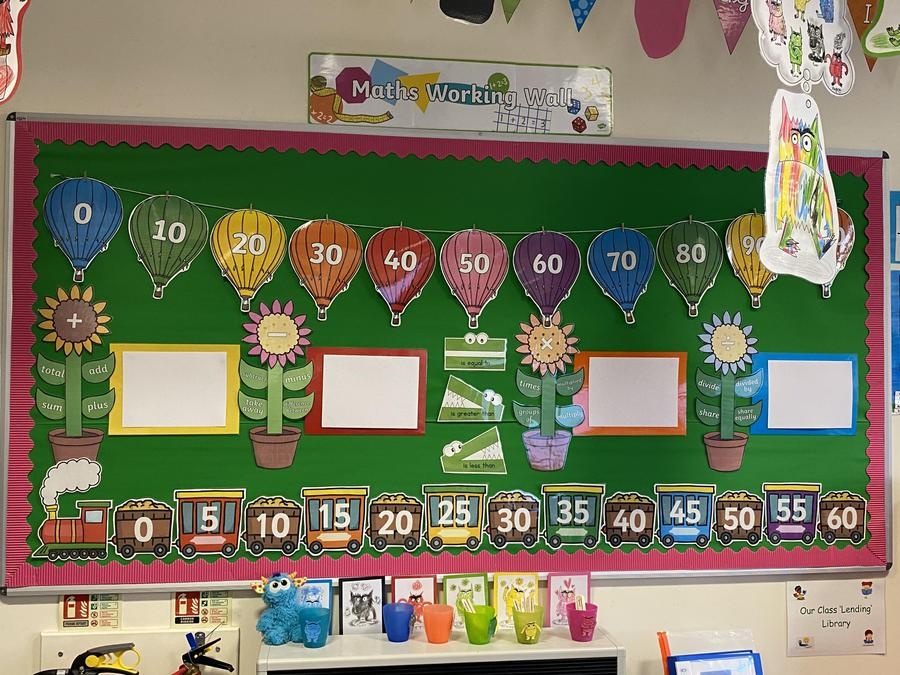Mathematics
Welcome to our Mathematics page
Early Years Foundation Stage (EYFS) to Year Six
Our Aim
At Birkdale Primary School we explore mathematics through a creative, engaging and challenging curriculum.
We provide all children with the opportunity to explore mathematics using a range of concrete, abstract and pictorial resources.
We strive to develop their mathematical skills through deeper reasoning and problem solving activities.
We want children to appreciate that maths is used in the wider world and how they can apply their mathematical understanding and knowledge to their everyday lives.
Mrs Ramsden, Mrs Szabó and Mr Lomax work around the school environment ensuring that this core curriculum subject area is taught creatively, enthusiastically and supports the aims and objectives of the new curriculum.
Your child is already surrounded by a mathematical world.
From entering school, your child will be encouraged to develop a passion for maths and will be enveloped in experiences to help them achieve this.
As they progress throughout the school, the children will have daily taught sessions in maths which will be broadly separated into the following areas -
- Number, place value and rounding
- Addition and subtraction
- Multiplication and division
- Fractions, decimals and percentages
- Measures - including length, mass, capacity, perimeter and area
- Geometry - including 2D and 3D shapes, position and direction
- Statistics
At Birkdale Primary, we use the White Rose Maths scheme to support our planning and teaching of Maths throughout our school. White Rose Maths is a scheme that has been developed by a team of passionate, Maths teaching experts who are influenced, inspired and informed by the work of leading Maths researchers and practitioners across the world. The schemes fundamental belied is that 'everyone can do Maths,' and it is designed to teach to the 'mastery' of concepts, so pupils become confident and resilient mathematicians.
While the White Rose is the 'spine' of our Maths curriculum here at Birkdale Primary, teachers enrich the content from high quality resources such as NRICH and NCTEM.
From entering school until they leave in Year 6, children are provided with opportunities to explore ideas practically through using concrete objects to consolidate their learning. This concrete learning supports and enhances children's understanding of mathematical concepts before they apply their knowledge in problem-solving activities.
After exploring practically, children are encouraged to record their thinking in their own ways e.g. pictorially.
Once the children have a secure understanding of the concepts through the concrete and pictorial stages of their learning, they are then introduced to the symbolic ways of recording their work i.e formal methods.
Children are consistently provided with opportunities to meet the 'mastery' level for their year group in achieving the objectives as set out by the National Curriculum 2014. They are also provided with opportunities to broaden their understanding so that they may demonstrate that they have 'mastery with greater depth' of their age group's objectives.

Early Years Foundation Stage (EYFS)
In the Early Years emphasis is placed on developing a strong grounding in number so that children develop the necessary building blocks to excel mathematically. Children are taught to count and develop and deep understanding of the numbers to 10. Activities are planned to allow children to recognise relationships and the patterns within those numbers.
Children are given opportunities for children to develop their spatial reasoning skills across all areas of mathematics including shape, space and measures. It is important that children grow a positive attitude and interest in mathematics by providing examples of real life activities e.g. through role play games - shopkeeper.
Please read the following document for more information detailing the expectations of Mathematics in Reception.
Key Stage One
In key stage one the primary focus of maths is to ensure that pupils develop confidence and mental fluency with whole numbers, counting and place value. This involves working with numerals, words and the four number operations (addition, subtraction, multiplication, division).
During year one and two, pupils should develop their ability to recognise, describe, draw, compare and sort different shapes and use the appropriate vocabulary. Children will have the opportunity to use a range of measures to describe and compare different quantities such as length, mass, capacity/volume, time and money.
By the end of year two, pupils should know the number bonds to 20 and have secure knowledge in using and understanding place value.
Please see the expectations for year one and two in the documents below for more detailed information.
Key Stage Two - years 3 and 4
The principal focus of mathematics teaching in lower key stage 2 is to ensure that pupils become increasingly fluent with whole numbers and the 4 operations (addition, subtraction, multiplication and division) including number facts and the concept of place value.
Pupils develop efficient written and mental methods and perform calculations accurately with increasingly large whole numbers.
Pupils are able to develop their ability to solve a range of problems and develop their mathematical reasoning skills. They will be encouraged to analyse shapes and their properties, and confidently describe the relationships between them and will also use measuring instruments with accuracy and make connections between measure and number.
It is the national expectation that by the end of year 4, pupils should have memorised their multiplication tables up to and including the 12 multiplication table and show precision and fluency in their work.
Pupils need to be able to read and spell mathematical vocabulary correctly and confidently, using their growing word-reading knowledge and their knowledge of spelling.
Please see the documents below for the expectations at years 3 and 4.
The year 4 Multiplication Tables Check (MTC)
Time is spent in school teaching and practising times tables in a variety of different ways to ensure that the children are fully prepared for the year 4 Multiplication Tables Check in June. We encourage children to practise at home using times table songs, Times Table Rock Stars, hit the button or any other games or methods they find helpful. The following video provides more information.
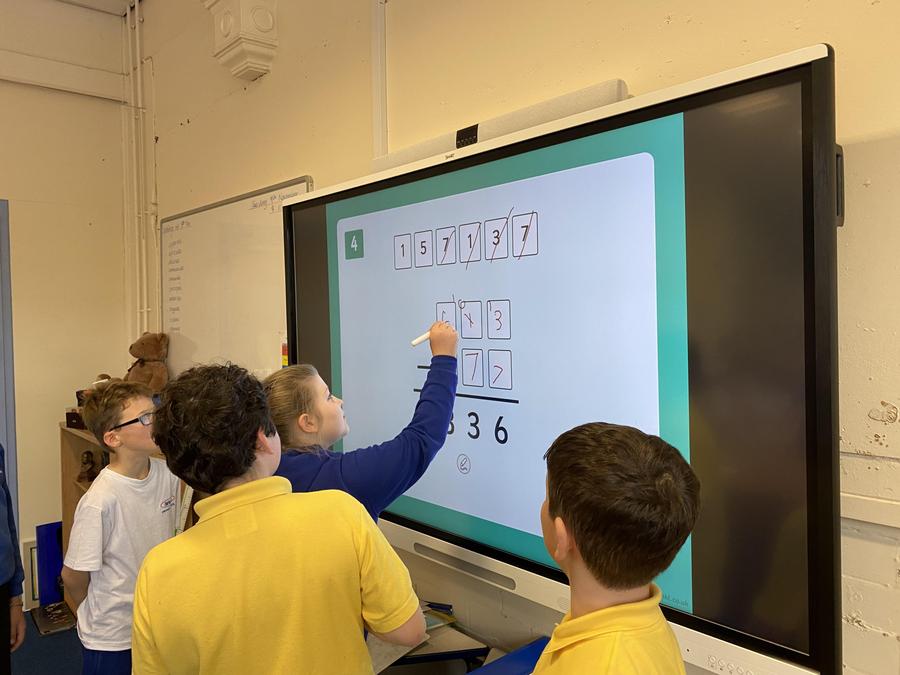
Key Stage Two - years 5 and 6
During upper key stage 2 (years 5 and 6) pupils extend their understanding of the number system and place value to include larger integers. Connections are then made between multiplication and division with fractions, decimals, percentages and ratio.
Pupils develop their ability to solve a wider range of problems, including increasingly complex properties of numbers and arithmetic, and problems demanding efficient written and mental methods of calculation.
With this foundation in arithmetic, pupils are introduced to the language of algebra as a means for solving a variety of problems. Teaching in geometry and measures will build upon pupil's knowledge of number and pupils will classify shapes with increasingly complex geometric properties and they learn the vocabulary they need to describe them.
By the end of year 6, pupils should be fluent in written methods for all 4 operations, including long multiplication and division, and in working with fractions, decimals and percentages.
Pupils are encouraged to read, spell and pronounce mathematical vocabulary correctly throughout our lessons.
Please see the documents below for the expectations at years 5 and 6.
Introducing our Maths Ambassador!

Let's hear from our Maths ambassador!

Pupil voice
- 80% of our pupils in school from reception to year 6 said that they enjoy maths! ![]()
- 91% believe that understanding maths is important.
- 83% believe that maths is useful in other subjects.
- 93% want to do well in maths!
- We asked our pupils what they think of maths in our school.

We had some great feedback from our pupils as to what they enjoy most in lessons and how they learn best.
Children…
…like using equipment such as compare bears, number lines, bead strings etc… and recognise that it can help them.
…see the benefit in playing games and using technology to support their learning and they would like to do this more
…enjoy challenges and competitions when playing games
…like to be given time and a quiet environment to complete work
…like working in groups or with a partner
…identified that teachers in school help them if they are finding it difficult
…feel that they are challenged and see that gradually increasing the difficulty of tasks helps them to learn
…feel it helps when we revise/recap work
…activities such a Big Maths beat that, arithmetic tests and times table challenges help them learn
…like using whiteboards
Children in reception to year 6 were asked how they use maths in other lessons. They provided some brilliant examples including...
Playdough
- make numbers
- Make shapes
- Numicon
Number jigsaws
Writing area
- number stencils
- number sheets
Science
- counted body parts
- measuring
- using a thermometer / temperature
- used numbers to represent how loud it is around school (scales)
- recording results
- weighing
- shapes – using prisms for light
- heart rate – beats per minutes
- recording results in charts, tables and graphs
Art
- used shapes
- measuring paint for mixing
- patterns
Computing
- coding
- timers
- moving in steps
- making formulas for a spreadsheet
Music
- counting the beats
- Adding note values together
- Note value
Geography
- counting continents
- Depth/ length
- Coordinates
- Lines of latitude and longitude
- 4 and 6 figure grid references
PE
- keep scores
- count people in a team
- Counting beats in a dance
- Dance – counting in 8s
History
- counting years
- calculating populations
- calculating how long a monarch has reigned for
- using timelines
- Roman numerals
Phonics
- how many words I have or how many in a minute
English
- counting stories
- How many paragraphs etc..
Telling the time
Using a ruler
DT
- Baking – measuring ingredients
- Measuring
It was fantastic to hear the children identifying how important maths is across all subjects!
It was amazing to hear what our pupils think of maths in our school!
Our Mathematics Policies
The documents below include our school Mathematics Policy and our school Calculation Policy. You may find our Calculation Policy particularly useful as it provides examples of methods we use throughout school.
Maths vocabulary
An important part of our maths lesson is encouraging children to use and apply the appropriate mathematical vocabulary. Below you can find a comprehensive list of the vocabulary we will be using in our maths lessons for each year group.
Here are some of our maths work and displays across school and some of our activities from year 5/6 maths club
YeaMaths club
Here are some useful documents and links to support maths learning at home.
-
MyMathsMyMaths - links to support at home
-
MyMathsSupporting your child using MyMaths
-
Top MarksYou can find lots of really useful and fun maths games on TopMarks.
-
MathshereThis is the 'Puzzles' section of the website. Time for some mind bending action!
-
Woodlands MathsThere are a whole host of interactive games and activites here separated into sections of Mathematics. Choose an area to focus on and give some of them a go.
-
MoshiMonstersEven Moshi Monsters love maths!

